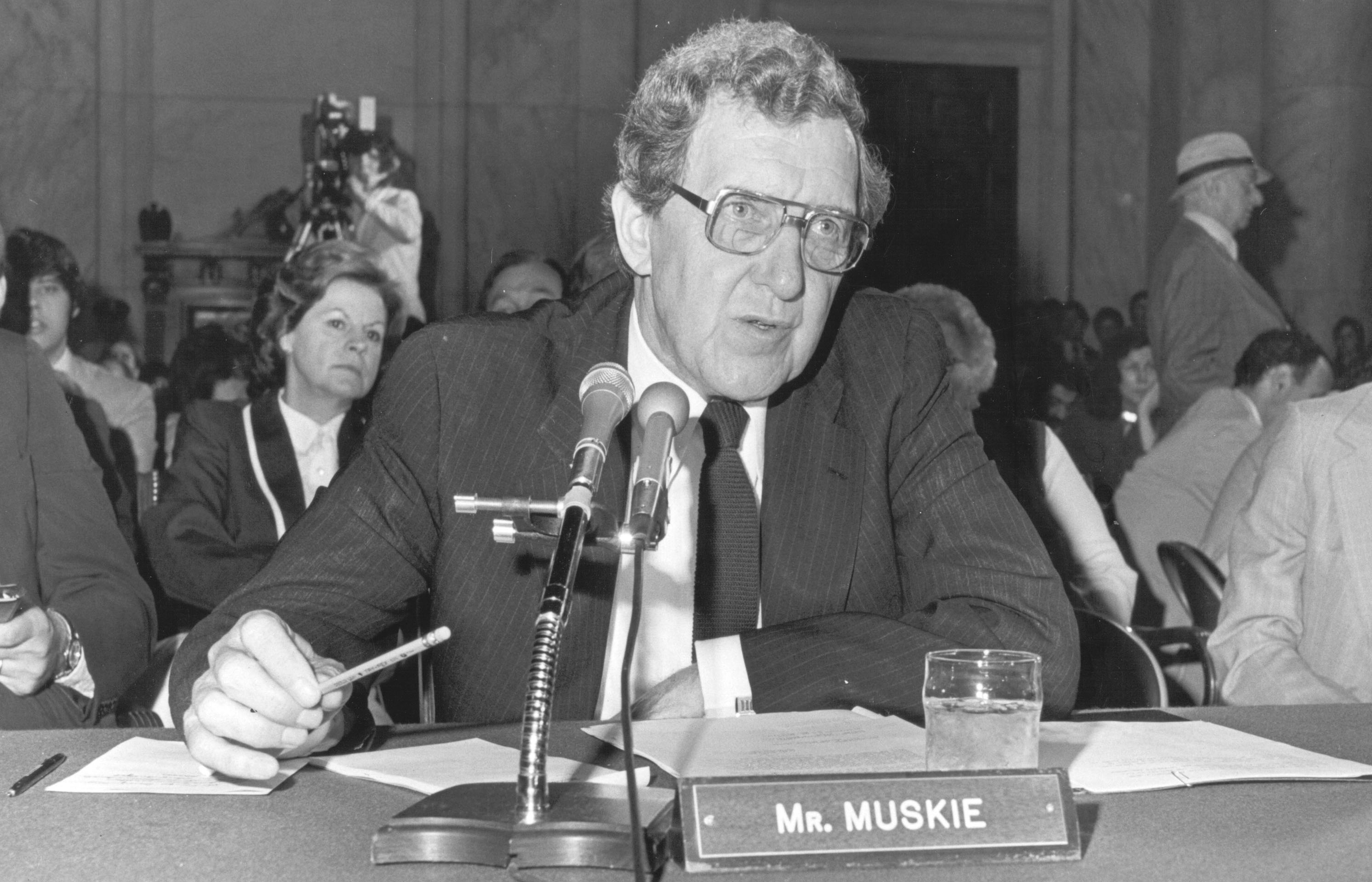
Edmund S. Muskie Oral History Collection
Document Type
Oral History
Loading...
Publication Date
5-4-1999
Interview Number
MOH 096
Abstract
Russell Train was born on June 4, 1920 in Jamestown, Rhode Island. He attended St. Alban’s School in Washington, D.C. and was a member of the class of 1941 at Princeton University. After Princeton, Train received his J.D. law degree from Columbia University in 1948. He was a staff attorney at the House Committees in Washington, concentrating on taxation, from 1949 to 1956. The next year, Train became the head of the legal advisory staff at the U.S. Department of Treasury. In 1957, he became the youngest tax judge in the country, a position he held until 1965. Train has served on the Ways and Means Committee and was the president of the African Wildlife Leadership Foundation as well as the Conservation Foundation. In 1970, Train received an honorary degree from Bates College. He was the first chairman of the U.S. Council on Environmental Quality and headed Richard Nixon’s task force on the environment. In 1973, Train became an administrator for the Environmental Protection Agency, a position he held until 1977. The following year he became the CEO of the World Wildlife Fund, where he served until 1985. Since then, Train has been involved with many environmental protection and conservation programs.
Use Restrictions
Copyright Bates College. This transcript is provided for individual Research Purposes Only; for all other uses, including publication, reproduction and quotation beyond fair use, permission must be obtained in writing from: The Edmund S. Muskie Archives and Special Collections Library, Bates College, 70 Campus Avenue, Lewiston, Maine 04240-6018.
Recommended Citation
Nicoll, Don, "Train, Russell oral history interview" (1999). Edmund S. Muskie Oral History Collection. 390.
https://scarab.bates.edu/muskie_oh/390


Scope and Content Note
Interview includes discussions of: Train’s personal background; Conservation Foundation; National Environmental Policy Act (NEPA); working in the Department of the Interior; Council on Environmental Quality; his working relationship with Ed Muskie; working with the Environmental Protection Agency (EPA); Watergate’s effect on environmental politics; Muskie’s temper; major environmental accomplishments; and receiving an honorary degree from Bates College.